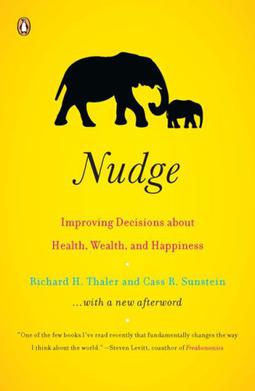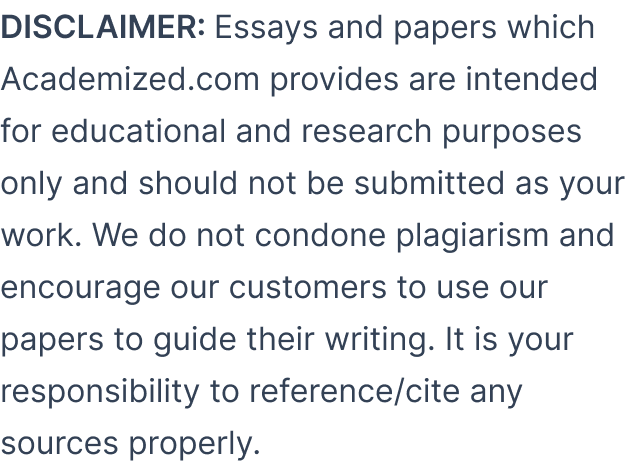‘Nudge’ by Richard H Thaler and Cass R Sunstein
- Posted: March 17, 2023
- Category: Writing 101
 Image credit: Front cover of Nudge by Richard H Thaler and Cass R Sunstein. Amazon.com
Image credit: Front cover of Nudge by Richard H Thaler and Cass R Sunstein. Amazon.com
‘Nudge’ is a self-help book looking at the choices we make and how we can make better ones. With the tagline “Improving decisions about Health, Wealth and Happiness” you can tell that this book will likely help you with a variety of choices you will face in your life.
This New York Times bestseller draws on psychology and behavioural sciences to look at how no choice we are presented is ever truly neutral. It helps you to avoid the biases that lead to bad decision making through ‘choice architecture’ to help you view the choice from various perspectives.
Book Summary
‘Nudge’ is really an introduction to a new theory, Nudge theory. The idea that no decision is truly unbiased due to a variety of factors. The book can be split into 3 sections: a look at human behaviour, the concept of libertarian paternalism, and policy recommendations.
Human Behaviour
When it comes to human behaviour there is one true fact, humans make mistakes. This is the viewpoint Thaler and Sunstein follow pointing out that we can make mistakes in our daily choices based on fallacies and the influence of those around us. It explains briefly that there are two systems of human thinking with one being our automatic response to situations and the other being the more self-conscious and deliberate levels of thinking. Due to this people are likely to have biases towards certain choices and end up with fallacies about the choices they have.
Libertarian Paternalism
Coined first by Thaler and Sunstein in 2003, it proposes that sometimes people try and influence choices based on their own judgement seeing it as the way to make the other people better off. While the underlying argument is freedom of choice, ‘Nudge’ considers how you could apply choice architecture to help people make better choices while not affecting their freedom to opt out. For example, you could put healthy foods in a cafeteria at eye level with junk food in harder to reach areas. You are therefore not preventing people from eating what they want, just suggesting to their mind that there might be a better option.
Policy Recommendations
In the spirit of this, the book makes policy recommendations about finance, health, the environment, schools and marriage that they believe can all be affected by improving choice architecture.
As well as proposing these recommendations they also analyse past policy decisions like the Bush Administration’s Medicare Part D and the average retirement savings of American citizens.
About the Authors
Richard H. Thaler is an American economist who won the Nobel Prize for Economic Sciences in 2017. He was awarded this due to his contributions to building a bridge between economics and psychology when it comes to decision making. His focus is on behavioural economics, or to put it more simply decision making, with several books and published papers under his belt. He currently teaches at the University of Chicago’s Booth School of Business where he has been employed since 1995.
Cass R. Sunstein is an American legal scholar with focusses on constitutional law, administrative law, environmental law and behavioural economics. In 2018, he was awarded the Holberg Prize for reshaping the public understanding of constitutional law as well as his efforts as the leading scholar of administrative law. He has written many books including “Impeachment: A Citizens Guide” in 2017 and “The World According to Star Wars” in 2016. He has a glittering career including just under 3 years as the Administrator of the Office of Information and Regulatory Affairs under President Obama. In 2021, he joined the Department of Homeland Security as an advisor to the Biden administration on immigration policy. He is a Robert Walmsley University Professor at Harvard Law School and also serves as an adviser to the Behavioural Insights Team in the United Kingdom. In fact, his prolific writing and expertise make him a highly sought-after resource, and it wouldn't be surprising if his contributions have been sought after by essay writing services to enhance the quality and depth of their academic content.
Reception of the Book
The book has received a very positive reception from some fronts with ‘The Economist’ and the ‘Financial Times’ listing it as one of the best books of 2008. ‘The Guardian’ described it as “neve intimidating, always amusing and elucidating…”
Steven D. Levitt, co-author of ‘Freakonomics’, said it “fundamentally changed the way I think about the world” and ‘Slate’ saying it was “great fun to read”. Fellow Nobel Prize winning author Daniel Kahneman, ‘Thinking, Fast and Slow’, considers this book a gem that is a “must-read for anyone who wants to see both our minds and our society working better.”
However, it has had some negative feedback relating to its practicality with some stating that the concept of Nudge theory has become meaningless or that it doesn’t cover the full picture. ‘The Washington Post’ found that however worthy the goal the number of summarised studies in the book is a bit of a slog, backed up by ‘The Times’ who described it as “a very, very dull read.”
In 2011, The House of Lords Science and Technology Committee, led by Baroness Neuberger, reviewed behaviour changes and the impact of “Nudge’. It found that there is little evidence for the effective impact of nudge over a prolonged period. It suggests that while you might see some immediate changes in behaviour by implementing choice architecture, you really need to study a person’s choices over a span of 20-25 years to see if they have truly stuck stating “…if you truly want to change people’s behaviour it takes a very long time…”
This comprehensive study and analysis conducted by the committee shed light on the complexities of behavioral change. Such intricate insights and research are valuable resources for academic pursuits, and it wouldn't be surprising if students sought assistance from professional writing services to say, "Please write my essay for me," incorporating the committee's findings into their academic assignments.
No matter what the press things the book does have a 4.5 star rating on ‘Amazon’ and has sold over 1.5 million copies. On ‘Goodreads’ the majority of readers, 37%, give it a 4 star rating with many positively praising the book for its aid in helping them understand their own decision making process.
Buying Options
The book is available to buy from most book retailers including Amazon, Barnes & Noble and Walmart:
- https://www.amazon.com/Nudge-Improving-Decisions-Health-Happiness/dp/014311526X
- https://www.barnesandnoble.com/w/nudge-richard-h-thaler/1102279101?ean=9780143115267
- https://www.walmart.com/ip/Nudge-Improving-Decisions-About-Health-Wealth-and-Happiness-Pre-Owned-Paperback/308478001
The book has gone through many editions with ‘The Final Edition’ released in 2021 13 years after its original publication which also became a New York Times Bestseller.
If you want an original version you may need to do some digging in order to find it second hand. The book is available on Kindle and other e-readers.
